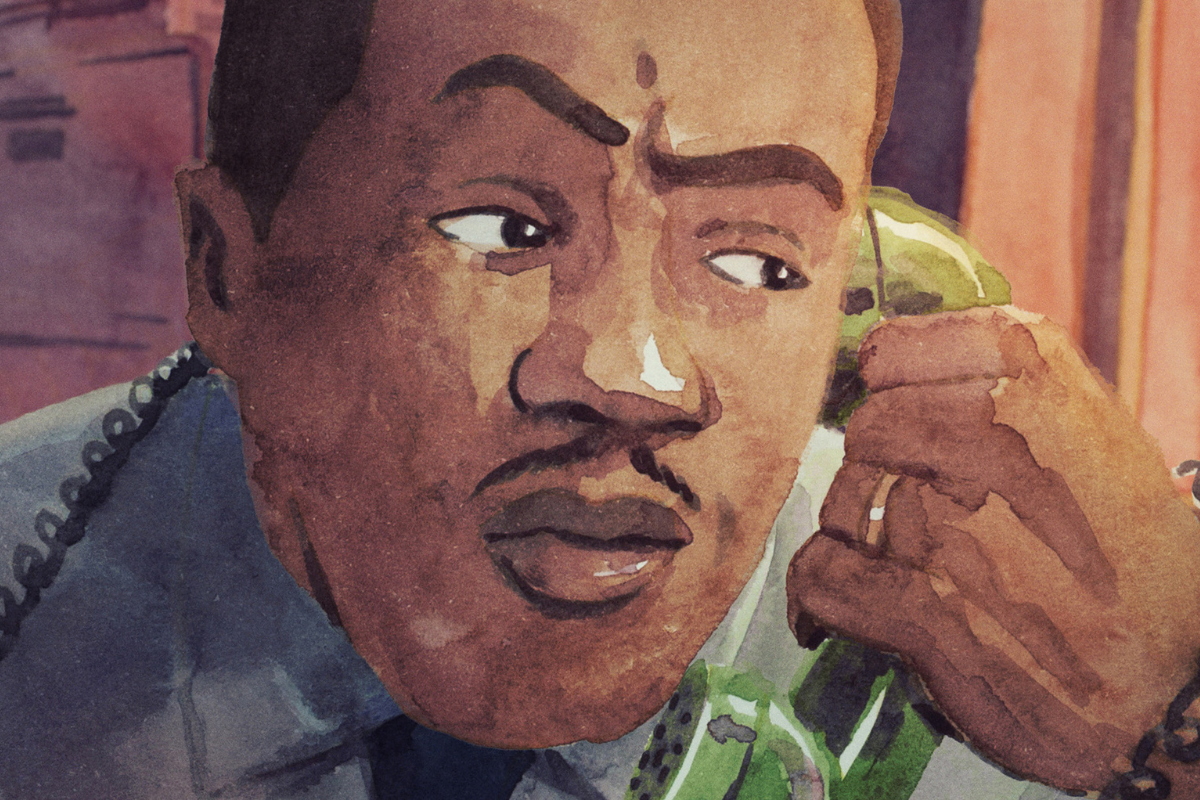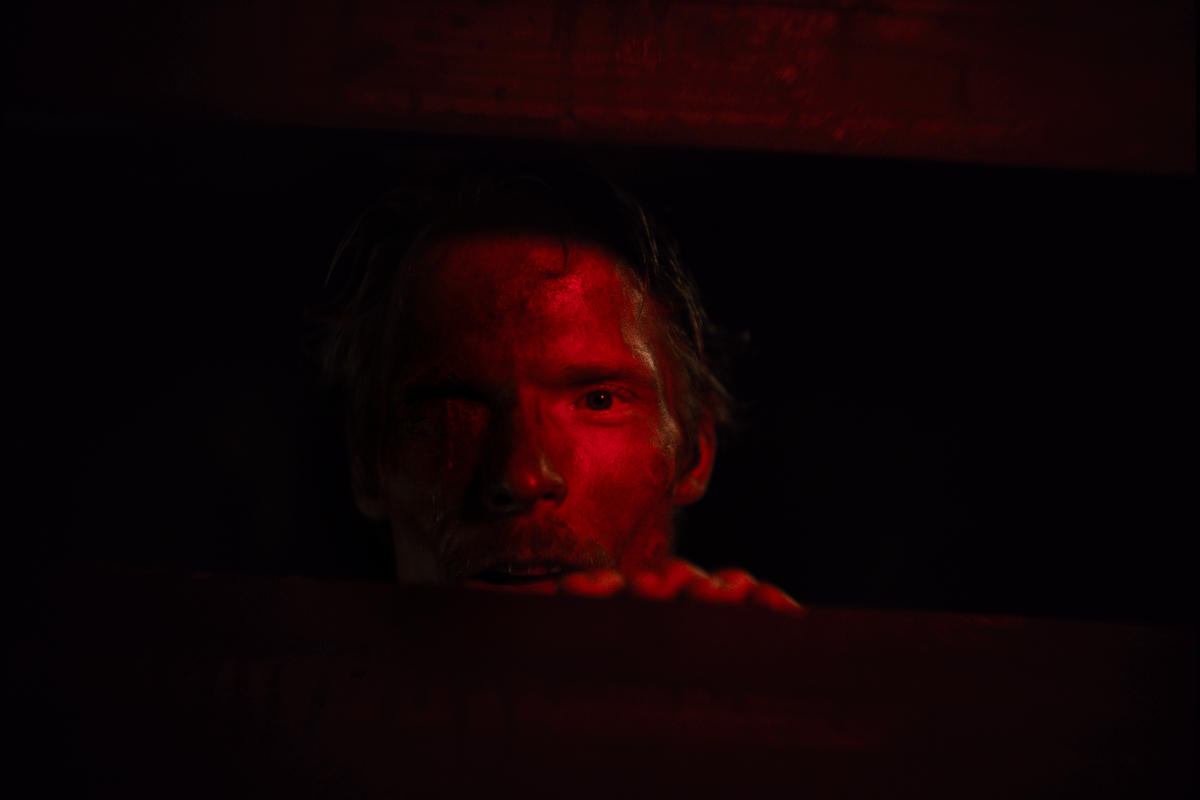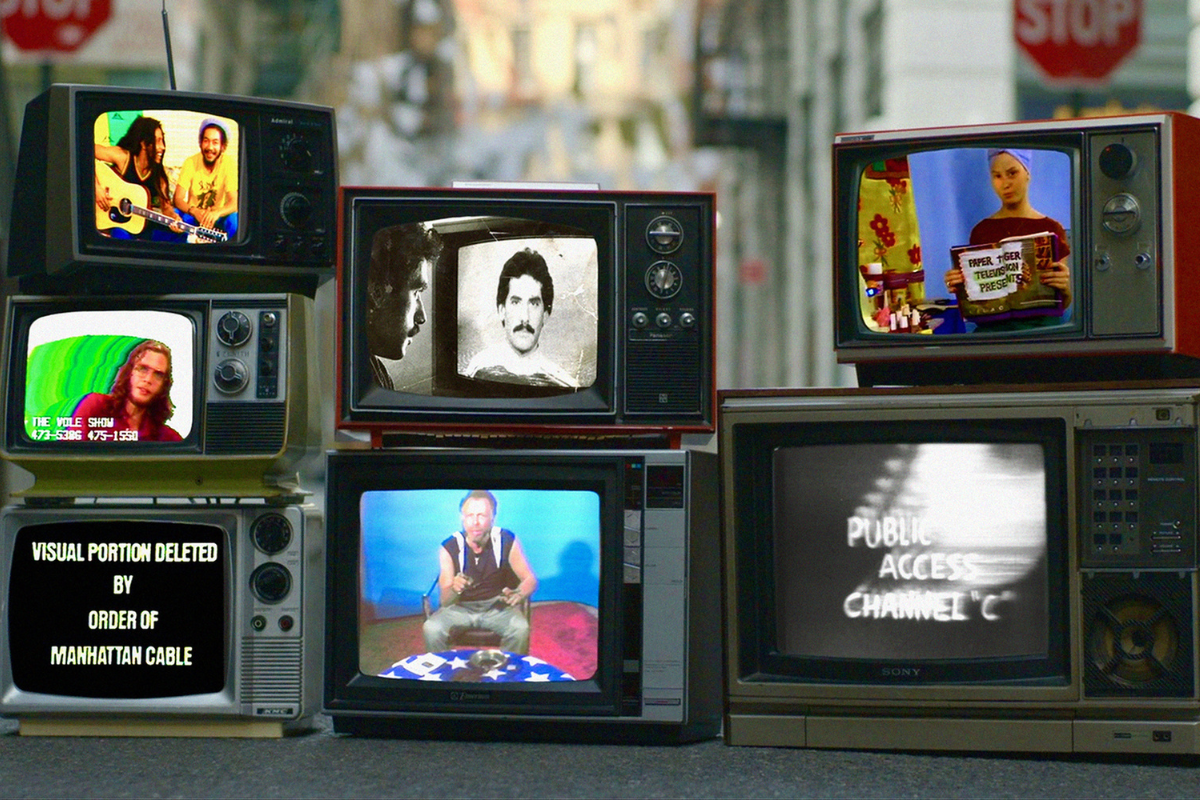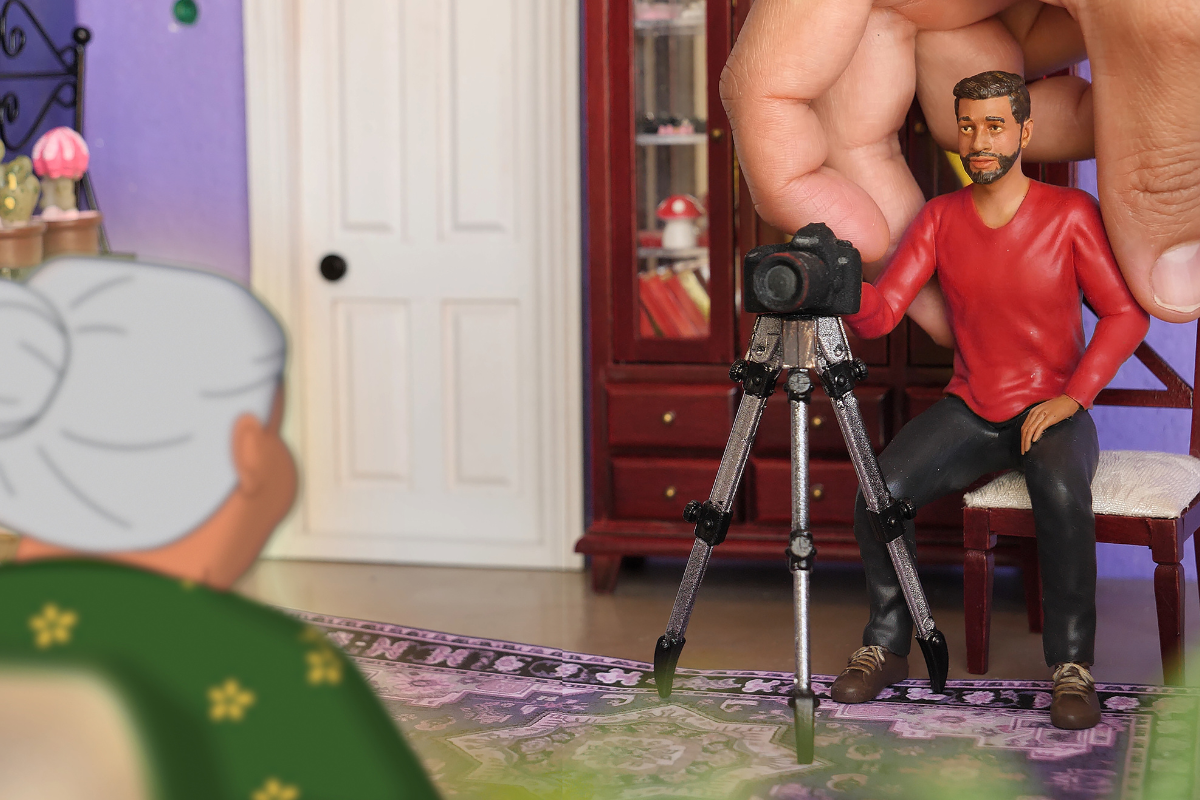INDIE SPOTLIGHT: Interview with ‘The Baltimorons’ Filmmakers Jay Duplass and Michael Strassner
Jay Duplass and Michael Strassner discuss the challenges of making independent films, the importance of ‘Yes, and…’ in their creative process as filmmakers, and more.
On Christmas Eve, Cliff, a newly sober improv comedian, cracks a tooth and lands in the emergency care of Didi, an older no-nonsense dentist. What begins as a routine check-up sparks an unpredictable evening of misadventures. Together, Cliff and Didi fight to overcome being shut out by their families, face their biggest fears, and discover their own surprising and tender connection.
Why, oh why, did we have to wait 14 years for Jay Duplass to get back in the director’s chair to make another feature indie darling? (Yes, we’ve seen his work in the TV space, but…) Well, that 14-year-long stretch was well worth it. Thanks to his recent collaboration with actor and comedian Michael Strassner, these two created a heart-melting comedy with their Audience Award-winning indie feature, The Baltimorons. It’s dark, satirical, and grounded in this “day in the life” run around on Christmas Eve.
Jay Duplass and Michael Strassner discuss with Script their initial meeting of minds, tapping into Michal’s personal story to structure the film’s narrative, the challenges of making independent films, the importance of ‘Yes, and…’ in their creative process as filmmakers, and so much more.
This interview has been edited for content and clarity.
Sadie Dean: A movie we all didn't know we needed right now!
Jay Duplass: We're making a little independent film in the age of TikTok, with no movie stars, even though that one is about to be a movie star. And to go to South by with it and win the Audience Award, up against extremely more expensive movies and higher profile movies. And to get a theatrical release right now...I think we've all been programmed to think that just doesn't happen anymore. So, it's been a wild dream come true.
We definitely made this on the tail end of the pandemic and the strikes and just when stuff felt like it was just over. It just feels like a dream that we're sitting here with you, talking to you about this, and on the verge of having a significant theatrical release.
Sadie: There’s hope for indie films after all. Michael, I was reading about how you took a shot in the dark to reach out to Jay to collaborate. Was this story idea already cooking, and did you have an idea already cementd that you wanted Jay to put his lens on this?
Michael Strassner: Well, I DM’d Christopher Nolan first. [laughs] No, I truly saw that Jay followed me, and I was like, ‘This is the coolest thing ever.’ I've looked up to this guy since I started watching independent movies. In 2005, I was in high school, and I remember seeing The Puffy Chair… and to have this guy follow me… this guy always talks about just going out and creating stuff… I want to send him something to see if he can help me get it going. No matter what, I'm going to shoot it, but I might as well just take my shot with him. And I reached out, and he got back to me six months later, and he was like, 'Please stop messaging me. This is too much.' [laughs] He said...
Jay: More dancing, less messaging!
Michael: [laughs] And he helped me, and this is the thing that gets me, and it kind of makes me emotional, because twice when I was writing the thing, and also when I made the thing, he took time…
Jay: This was a short film he was making, not our movie, by the way.
Michael: Yeah…but he took time out of his busy day to help somebody. And that's Jay. He does stuff for others. And that means the world to me. And thank god this is not recording my face, because I'm crying. And then I told him a little bit of my story, and as a thank you, I took him out to lunch, and I told him about how I got sober, and I told him about my mental health and where my alcoholism took me and he called me four months later and said, 'I want to shoot a movie and I want it to backend your life. Do you want to do it?' And I was like, 'Yeah. Let's freaking do it, man.' I never would have expected this call. And it was the coolest thing, because after that lunch in December, I put out manifestations: Shoot a movie with Jay Duplass. And I didn't realize he hadn't shot one in 14 years, but I shot my hopes high, and the nucleus of Baltimorons came from that initial sit down 'thank you.'
Sadie: That is so cool. Just chills from that story. Jay, what was that collaboration like? You’ve been in the industry for a while now, and doing your thing, but what was it about Michael and this story, and this moment right now, to shoot your shot too, by also taking a chance on Michael?
Jay: I mean, your instincts are right in that all these things came together at just the right time, circumstantially for me. I came up making movies with my brother. Most people know about that, and he became a famous actor, and then got really into producing, and we moved into TV, like a lot of independent filmmakers did, because that's how you could make money. But the whole time, my dream has always been to be the Coen brothers with my brother, since I saw Raising Arizona in 1987. That has never died.
But over the course of the last 14 years, when's the last time I made an original film... it took us that long to realize that Mark didn't really want to direct movies, and boy, do you need to want it, because it is the toughest job. I've done all the jobs, from directing to craft services, and it's the toughest job. So, you got to really want it, and that's just not really his calling. And I think it took me a long time to figure out. It still is, even though it's not really what Mark wants to do. That is what I want to do. It's everything to me.
About seven years into that 14-year period, I started writing scripts and being like, 'OK, I'm going to make something on my own.' But the pandemic happened. Making independent films during a pandemic was - a COVID budget costs more than our movie costs. And then that ended, and I was ready to pounce. And then we had the strikes. And even during that time, I just wasn't getting that much traction, because Hollywood is not 'what have you done?' but 'what have you done lately?' I'm sure people were rightly questioning whether or not I could actually make something great without my brother. That's also a stumbling block.
And so, towards the end of the strikes, I was like, I need to get on the ground and make something that can't be stopped, that doesn't need external funding, that doesn't need movie stars, that doesn't need the perfect scheduling to come, because that's a whole other inside baseball thing. Back in the old days, [laughs] movie stars would do one or two big movies a year, and they would never do TV because TV wasn't high-class enough. And you could crib a movie star for your independent film, and there were always slots for those. You cannot get a movie star now, because they're all making $250,000 an episode doing guest stars and character arcs, and starring in. Freaking Meryl Streep is in TV shows. It is extremely hard.
This is just a very long way of saying that I just needed to get on the ground with ridiculously talented people who are feeling similarly underexpressed as I was, which was Michael, which was Liz Larsen, which was Olivia Luccardi. We were all so hungry to make something and to make a real piece of art at the very time when everybody was like, 'Yeah, movies are dead. It's TikTok. Now that's the dominant American art form worldwide.'
So it was almost like a defiant act, and almost felt fatalistic in a way, like you're going to make a movie with no movie stars at this time? You're not going to make your money back. You're not going to get a theatrical release. We're going to drop this in the ocean of Netflix, and it's going to disappear forever.
And to have done it, to have had an incredible experience, to have premiered at South by Southwest, won the Audience Award. We've won so many audience awards along the way, it's just been unbelievable. I've never had a movie this successful at a film festival, even studio movies. And to have a significant theatrical release with no bankable movie stars. I mean, that guy is a movie star that's coming and Liz too. I'm so thrilled to see where their careers go when this movie releases. They just have it, whatever it is. They have it.
Michael: Been a dream come true.
Sadie: Winning all these audience awards, I think that just speaks volumes about what movie audiences really want – they want original stories like this. And these characters. There’s this fun grounded farcical reality that Cliff lives in. Can you talk about his development, especially with that opening inciting incident?
Michael: That opening scene is how I got sober. You wouldn't have guessed that, or maybe you would have, I don't know, but a couple nights before, I was doing a show and making people laugh, and everything was OK, and then it wasn't. And I'm so grateful that I was holding a little bit of holiday weight, and the belt broke, and I asked for help the next day.
I will say, I don't think it's easy to write those things when you're so close to it. So, if you write a movie six months after that happens, it's probably not gonna be great for you. But I think once you've worked through those traumatic moments. It is serious for a lot of people, and they have a hard time finding the light in it. But when I was able to say, 'Yeah, I was holding holiday weight, that's why it didn't work out,' [laughs] it makes it OK to laugh.
For me, getting sober, I was so afraid of what that looked like. Alcohol and drugs were such a huge part of my life where it was everything. And turns out, you take that one thing away, you get everything, but you just don't know that until you actually do it. I thought I was not going to be funny. I was so scared of what that life looked like. And it truly has been what I could have imagined, it's way surpassed that, which is the most wild thing. And getting to put that into a film and getting to put those first six months into a movie, it's the best.
And when you have somebody like Jay nurturing it and writing it with me, and directing it in such a way that we towed this line of comedy that's if it's a hair broad, the movie doesn't work. And we found a nice middle ground. It's what my favorite comedies did, is have those moments that are serious, but also have got some really funny lines in the middle of it.
Sadie: With the improv background for Cliff, and how the power of ‘Yes, and…’ not only applies to Cliff’s character but also this sweet May-December romance between him and Didi. How much of that ‘Yes, and…’ was applied as a filmmaking tool?
Jay: I just feel like, probably all artists, and especially Michael and me found a kinship in the spirit of 'Yes, and...' Miguel Arteta is a friend of mine, he likes to say, 'Everyone and everything is trying to stop you from making a movie.' I say it a different way, ‘Nobody's knocking on your door to make your special little piece of art. Nobody's ever gonna do it.’
I do think that it's an act of faith to make an independent film, it's an act of faith to walk on stage and do an improvisational sketch and hope that it's funny, and to know there's a really good chance you're going to fall flat on your face. That kind of courage, I think, is hard to come by. You have to fight for it. You have to cultivate it in yourself, and when you see it in somebody else, boy, is there a kinship.
I just knew that Michael and I would be out on the streets of Baltimore in the middle of the night in 20-degree weather, and falling on our faces and giving each other the space and the spot to recover and figure out how to fix it. And we did fail out there, but we gave ourselves the love and the encouragement to recover from it and to improve it, and the patience and the faith in each other that we would find it.
I think that's really what great art making is about. Is 'Yes, and…' it's just like 'I'm with you no matter what happens. And we're going all the way to the end. And whether we collapse and fall on our faces or we soar, whatever it is, we're going there together.' And that is truly an act of faith.
And I think that's kind of like what people talk about, I think when they talk about how artists kind of hold the light for people, for themselves, for other artists, for everybody else too, is because you kind of can't have these moments where you soar without risking falling on your face. I mean, it sounds so cheesy, all the stuff that I'm saying, but it's just so fucking true! It's just what it is.
Sadie: It absolutely is. This may be a stretch or I’m reading too much into this, but I feel like Cliff is like Didi’s soft shell crab, and his Cadillac is like his boat, because those who have driven Cadillacs know those cars ride like boats.
Jay: [laughs] I think you're nailing it. I mean, Cadillacs ride like boats. Soft shell crabs are the sweetest of all. We're in Maryland. Why not?
Michael: Soft shells are vulnerable. They really are. [laughs]
Jay: They're very vulnerable. But if you get it right, they taste the best.
[all laugh]
Sadie: Jay, taking this film to the finish line, working with your editor Jay [Deuby] again, any happy surprises during that final phase of making the movie?
Jay: Jay Deuby is the unsung hero of everything that I've ever done. We used to call him the third Duplass brother. He really does rewrite our scripts in editorial. He's so elegant about it, and he's fucking funny as hell. He's such a critical part of the process. But especially in this movie, we reshot the entire improvisation scene, which is the cornerstone of the whole movie. I mean, it's really a microcosm of the whole movie. And he was a big part of helping Michael and me re-envision that and figure out exactly what it needed to be, which now it's like probably three, four, five, six acts in that one in sequence. It's super complicated. It's honestly one of the most complicated things I've ever written. And he was a huge part of that as well. So indispensable, also funny as hell, and secretly writes a lot of the jokes that we say in the movies. He doesn't want to be interviewed, but he deserves the credit.
The Baltimorons will have an expanded theatrical release on September 12th and 19th. Check your local listings.







